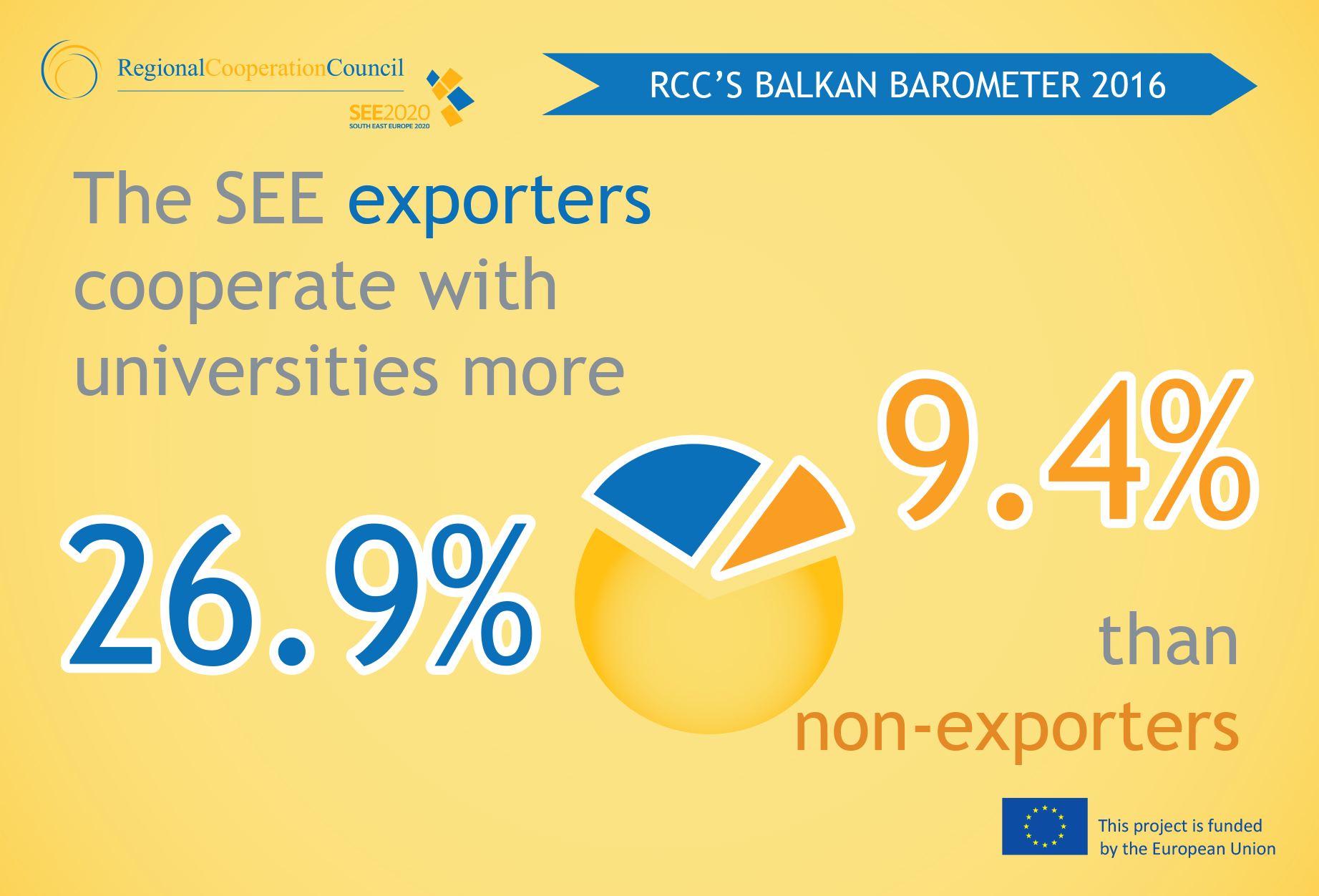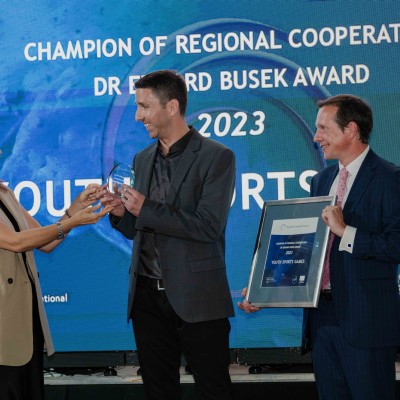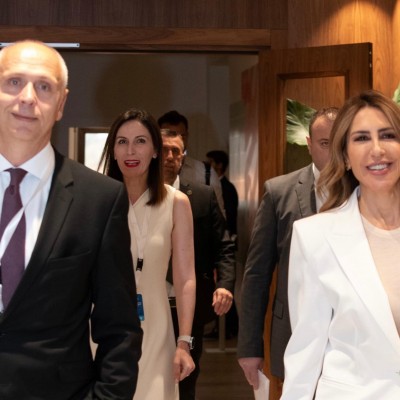Svilanovic at Milocer Development Forum: We at the RCC foster multi-dimensional approach to sustainable development
13 September 2016

RCC’s Balkan Barometer 2016 show that South East European businesses that export cooperate much more with universities than non-exporters
Secretary General of the Regional Cooperation Council (RCC) Goran Svilanovic participated today at the regional Milocer Development Forum in Cetinje (Montenegro) where he presented some of the specific RCC contributions towards strengthening sustainable development in the region. Svilanovic also shared with the Forum participants some of the most important messages of this year’s RCC Balkan Barometer – public and business opinion survey conducted to determine regional trends and issues the region faces.
This year’s 21st edition of the Forum organised by the Montenegro Association of Economists and Managers focuses on education for sustainable development.
“We at the RCC foster multi-dimensional approach to sustainable development and our key development and growth strategy – SEE 2020 includes sustainable development. We use it to monitor progress in the region not only strictly related to sustainable and efficient use of resources but also through progress in increasing enterprise creation and exports,” said Svilanovic in his opening speech.
“According to Balkan Barometer, as much as 41% of surveyed large companies believe that infrastructure has negative effects on their business. This data is of concern, stimulating us to greater efforts in order to come to grips with the issues of infrastructural improvements in the region” added Svilanovic.
RCC Secretary General presented some of the activities under the RCC’s Connectivity which Berlin Process put on the agenda: “RCC supports transformation of transport corridors which are equally environmentally sustainable, climate-resilient and cost-effective. Such corridors represent the basis for competitive logistics and trade, as well as corridors connecting industrial zones, clusters and industrial hubs rather than geographical locations – thus putting transport in the function of trade, industrial development and doing business in general”.
Svilanovic emphasized that in the area of environment and climate change a regional intergovernmental platform (RWG Env) was established under the auspices of the RCC which not only enables the exchange of experience, knowledge and best practices but is also an important mechanism to manage joint environmental projects at regional level. He said that considerable efforts have been focused on tourism where RCC’s activities are directed towards development and promotion of joint regional tourism product, supporting local governments and communities in improving their local circumstances as tourism destinations.
‘Education for sustainable development’ is one of the most advanced areas which contributes to tackling social challenges through researches, education and innovation. The event gathered the most prominent experts and professors in this area from the region, the EU and from around the world.



